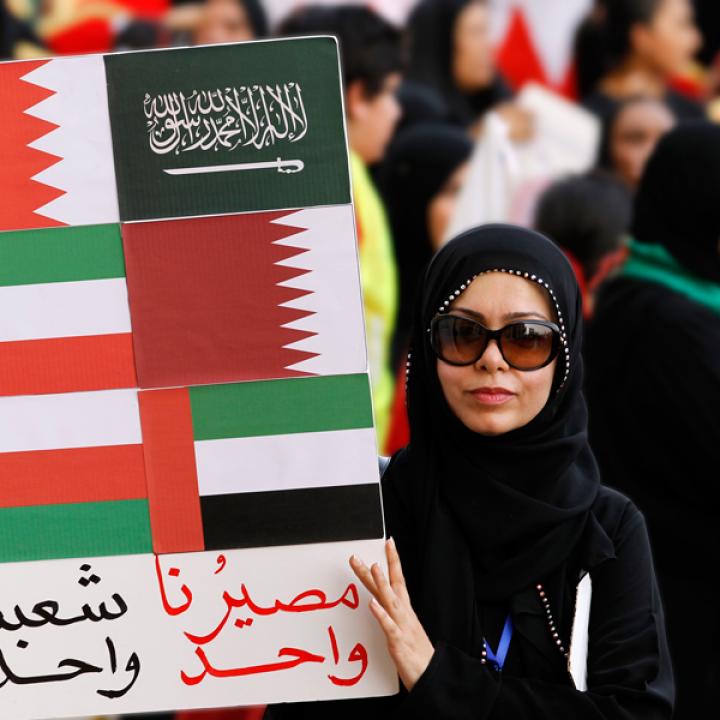

Bahrain's decision to restrict contact between foreign diplomats and political activists should be condemned by Washington and ignored by the U.S. embassy in Manama.
On September 3, Bahrain announced another limitation on its very limited democracy, which allows elections but not political parties. The new rule was clear, at least in Bahrain-speak: the island's political "societies" need to ask for permission to meet with foreign diplomats at least three days in advance and, if permission is granted, accept that a government-nominated observer will also attend. The new regulation was no doubt aimed at Shiite opposition groups, which withdrew from parliament in 2011 after a government clampdown on violent demonstrations led neighboring Saudi Arabia to intervene with tanks and soldiers to bolster the government of the Sunni monarch, King Hamad bin Isa al-Khalifa.
The restrictions, which also apply to undefined foreign political organizations, appear to be a consequence of a rare joint meeting of the (appointed) upper and (elected) lower houses of parliament held in July. That meeting resulted in twenty-two recommendations that included restricting contacts with foreign diplomats and banning rallies in the capital. Since the Shiite resignations two years ago, the national assembly has been perceived as reflecting hardline views in the royal family, particularly those of the prime minister and king's uncle, Sheikh Khalifa bin Salman, who is believed to be behind the latest change.
Al-Wefaq (the island's principal Shiite "society") and the smaller Waad (a secular group) have issued statements challenging the new regulation, and al-Wefaq pulled out of a scheduled meeting of the so-called "National Dialogue" in protest. The U.S. and other Western embassies -- which have been deeply involved in encouraging political reforms by the opposition and government -- are considering their formal response. Thus far, diplomats have indicated that they regard the order as applying to Bahraini nationals rather than themselves, saying they are still prepared to meet with anyone who requests it.
Washington's local dilemma is that Bahrain hosts the headquarters of the U.S. Fifth Fleet. Yesterday, Vice Admiral John Miller, the fleet's commander, met with Crown Prince Salman bin Hamad, the king's son who is known for his relatively moderate views. Seemingly reflecting the perceived seriousness of the new development, Salman also held a separate meeting with U.S. ambassador Thomas Krajeski, who has often been vilified in the Bahraini media for alleged interference in the island's politics. Afterward, the state-run news agency reported that the crown prince had called for a "holistic approach to the current situation," and that he had noted Washington's support for steps already taken.
At the core of Bahrain's problems is the widespread belief among the majority Shiite population that the palace will never concede significant political power so long as hardliner royals view Shiites as sympathizers of Iran, which once held claim to the island. Bahraini police claim to have found links between Shiites involved in nightly clashes with security forces and cells run by Tehran and Hezbollah. Yesterday, the American embassy issued yet another "Demonstration Warning" -- its fifty-first such notice this year -- advising U.S. citizens to avoid downtown Manama today due to the possibility of "clashes between government forces and protestors."
Although the latest crisis is part of a long-established continuum, it also reflects new concerns stemming from the debate over Syria's use of chemical weapons. The Bahraini government, which is known to be worried about the Obama administration's policies on Syria and the Iranian nuclear program, seems to have decided that the time was opportune to risk Washington's wrath.
Simon Henderson is the Baker Fellow and director of the Gulf and Energy Policy Program at The Washington Institute.



